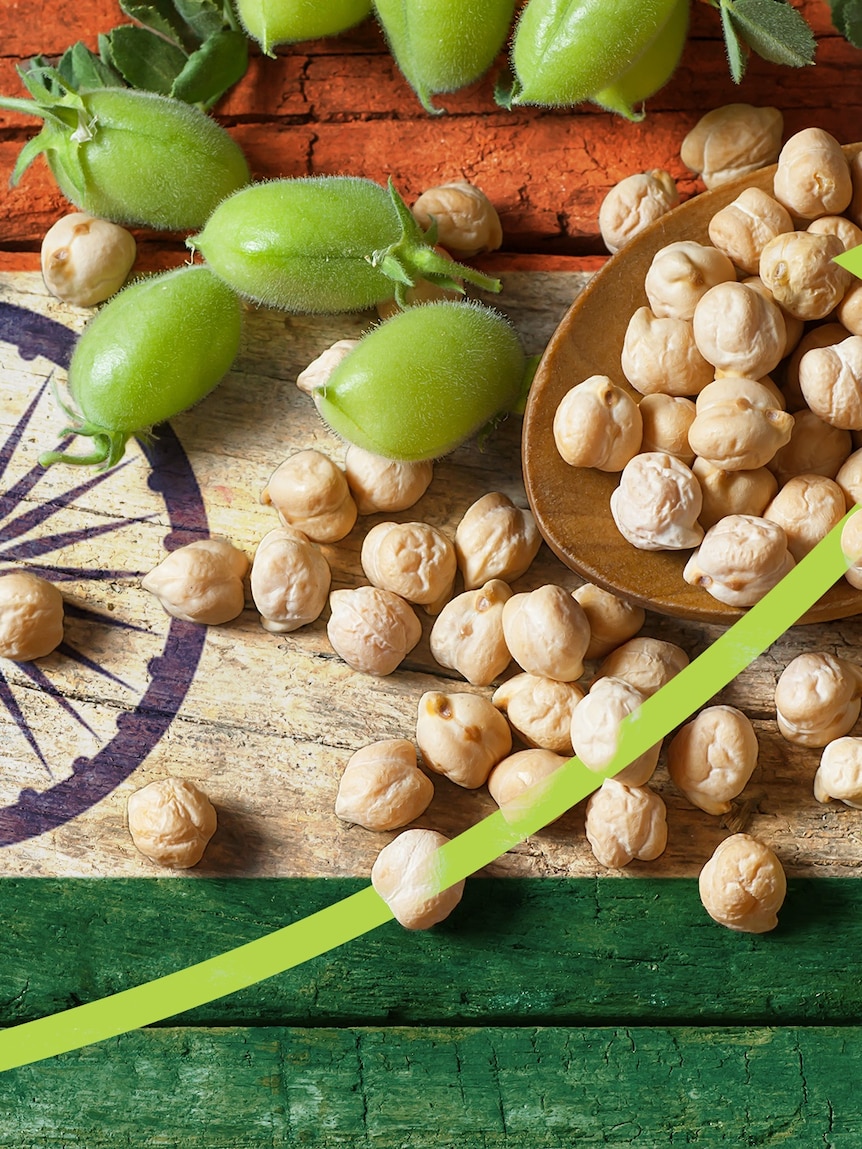Chickpea prices bolted this week after India announced it would suspend tariffs on desi chickpeas.
It established the tariffs during 2017, effectively eliminating Australian chickpea exports to the world’s largest consumer of the legume.
Moree-based agronomist Peter Birch said prices had soared to above $1,000 per tonne, which was “exceptionally good money for chickpeas”, and he expected a lot of growers would look to cash in.
“There will be a huge chickpea plant [now] and I suspect it might be the biggest we’ve had [in this region],” he said.
“Not just the people who already had chickpeas in their rotations, but there’ll probably be some growers change from [planting] later wheat and barley crops, to putting chickpeas in.”
Grain Producers Australia’s Mark Schilling said the timing of India’s suspension was useful to growers gearing up for winter planting.
“This notice gives growers the confidence in planting a chickpea crop with little fear of market access issues,” he said.
“Chickpeas, as a legume and protein supplier, have benefits to growers’ bottom line, as the plant can produce natural nitrogen in the soil to support subsequent seasons and reduce reliance on fertiliser inputs.”
India’s tariffs had been equivalent to about 66 per cent.
Its decision to lift them would be in effect until March 31, 2025.
According to Clear Grain Exchange (CGX), old and new season crop prices for chickpeas increased this week by more than $100 per tonne in some areas following the announcement.
“Off the back of the news from India we’ve seen a new buoyancy in the market and prices that haven’t been seen since 2016,” CGX’s Tom Taylor said.
“It’s a significant change for the chickpea market in Australia and you’d expect a lot of growers are now looking at their planting options.”
Grain Producers Australia said chickpeas were an important commercial crop in New South Wales and Queensland and were becoming more widely grown in southern Victoria, South Australia and Western Australia.




